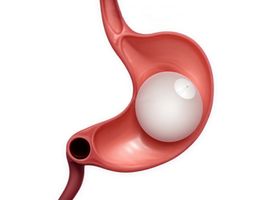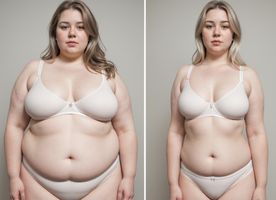Bariatric Surgery in Monastir
Search and Compare the Best Clinics and Doctors at the Lowest Prices for Bariatric Surgery in Monastir
Centre International Carthage Medical



































































































































No Time?
Tell us what you're looking for and we'll reach out to the top clinics all at once


Bariatric surgery is a group of weight-loss surgeries that involves making changes to the digestive system, some of which are non-reversible. The idea behind these types of surgeries is to help patients lose weight by either limiting the amount of food they can consume/digest at any one time or reducing their body’s ability to absorb nutrients. Some procedures do both.
Bariatric surgeries should only ever be the final option when diet and exercise have proved inadequate and there are now serious health concerns caused by a person's weight. In general, these surgeries can only be an option for patients whose body mass index (BMI) is 40 or higher (extreme obesity). In certain cases, patients whose BMI is 30 to 39.9 may qualify for certain types of bariatric surgery if they have serious weight-related problems, such as type 2 diabetes.
The three most common types of Bariatric Surgeries are as follows:
- Gastric Sleeve – The most common surgery, in which about 80% of the stomach is irreversibly removed, resulting in a sleeve or tube-like structure. This smaller stomach will not be able to hold as much food and produces less of the hormone that regulates appetite (ghrelin), which can lessen the patient’s desire to eat.
- Gastric Bypass – A more complicated procedure in which the stomach is divided into two parts; a small upper pouch and a large lower ‘remnant’ pouch. The small intestine is rearranged to bypass the large pouch. As a result, the volume of the stomach is significantly reduced. This causes food to go into the small upper pouch of the stomach and then directly into the small intestine. The small upper pouch can only hold around an ounce of food. Gastric Bypass is typically not reversible.
- Gastric Band – Involves an inflatable silicone device that is fitted around the top portion of the stomach to create a smaller stomach pouch. This procedure causes the patient to feel fuller with less food but still allows the body to digest food as usual, without malabsorption. The device can be removed when the patient reaches their desired weight.
The bariatric surgeries mentioned above are typically performed laparoscopically, in which the surgeon creates around one to five small incisions in the abdomen to insert a laparoscope (a long narrow tube with a camera) and surgical tools. The patients are usually given a general anesthetic, so they will not feel anything throughout the surgery.
How Long Should I Stay in Monastir?
After bariatric surgery, an overnight stay in the hospital is usually required. In some cases, you may need to stay longer (around 3 to 5 days). However, it is not advisable to leave Monastir as soon as you are discharged from the hospital. Stay at least 10 to 14 days following your surgery for initial recovery and follow-up checkups. During the follow-up checkups, your surgeon will remove your stitches and check your overall condition.
What's the Expected Recovery Time?
The recovery time may take around 3 to 6 weeks until you are allowed to go back to your normal activities, including work, with some restrictions. You must avoid heavy work and strenuous activities, such as lifting, pushing, or carrying heavy loads for at least the first three months after surgery. You should also avoid sitting and standing without moving for long periods to avoid blood clots forming in your legs.
What Aftercare is Required?
You will be given a special diet plan immediately after your surgery, as well as detailed post-operative instructions. Make sure to follow the diet plan and instructions to avoid complications and speed up your recovery. In order to maximize and maintain weight loss, it is important that you commit to healthy eating and regular exercise. There may be restrictions on how much food you can consume. You may also need to change your eating habits, such as eating 6 small meals instead of 3 large meals each day. You should take vitamins and mineral supplements to ensure proper nutrition.
What's the Success Rate?
The success rates vary for each of the different types of bariatric surgery. In general, within the first six months following the surgery, most patients lose around 30% to 55% of their excess weight. Then, as early as 12 months after surgery, most patients lose over 70% of their excess weight. Patients could also maintain a 50% to 60% loss of excess weight for 10 to 14 years after their bariatric surgery. Although the success rates are high, there are risks associated with bariatric surgery, such as bleeding, deep vein thrombosis, infections, spleen injury, stenosis, and infections.
Are there Alternatives?
There is a non-surgical Bariatric procedure, known as the Gastric Balloon. This involves an inflatable device that is temporarily inserted into the stomach via endoscopic placement. A sizable area of the stomach is obstructed by the balloon or balloons, thus reducing the amount of food it can contain at any one time, leading to eventual weight loss. The balloons are usually removed after 6 or 12 months.
If you cannot or do not want to undergo any surgery or medical procedure, you may be able to work with a doctor who is experienced in treating extreme obesity and a dietician as the alternative. They may recommend you to change your diet, adding physical activity, and prescribe medications.
This information has been accurately sourced and verified by a medical professional for its accuracy, however, we strongly recommend you to consult with your doctor before pursuing medical procedures overseas.



















